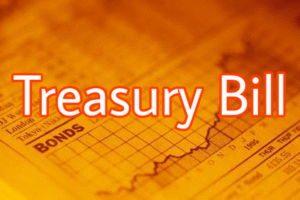1. Introduction: How Ghana’s Economy Is Built
Ghana’s economy is one of the most dynamic in sub-Saharan Africa — driven by a mix of natural resources, human capital, and entrepreneurial energy. Yet for many citizens, the structure of this economy — the forces shaping growth, employment, and investment — remains a mystery.
At its simplest, Ghana’s economy rests on three major pillars:
-
Agriculture — the traditional base.
-
Industry — the productive engine.
-
Services — the modern growth driver.
Each sector plays a distinct role, but together they form the foundation of Ghana’s GDP, influencing trade, fiscal policy, and household income. Understanding this structure is essential not only for economists and entrepreneurs but for anyone interested in how Ghana grows and competes globally.
2. Agriculture: The Traditional Backbone
Long before the oil fields of the Western Region or the factories of Tema, agriculture was Ghana’s primary economic lifeline. The sector still employs around one-third of the working population and contributes roughly 20% of national GDP.
Key sub-sectors include:
-
Cocoa: Ghana is the second-largest cocoa producer globally, a major export earner supporting millions of livelihoods.
-
Food crops: Cassava, maize, rice, yam, and plantain dominate local diets and rural economies.
-
Fisheries and livestock: Contribute to food security and small-scale employment.
Government programs like Planting for Food and Jobs (PFJ) and Agricultural Mechanization Centers aim to modernize this sector through irrigation, improved seeds, and fertilizer access.
However, the challenges are persistent:
-
Climate variability and post-harvest losses.
-
Limited rural infrastructure.
-
Inadequate credit for smallholder farmers.
For Ghana to achieve sustainable growth, agriculture must shift from subsistence to agribusiness — where farmers become commercial producers, not just food suppliers.
3. Industry: The Engine of Transformation
Ghana’s industrial sector is the engine that converts raw materials into finished products and infrastructure. It contributes about 30% to GDP, encompassing manufacturing, mining, construction, and energy.
Key pillars of industry:
-
Mining and Energy: Ghana remains Africa’s leading gold producer, while the oil and gas industry — anchored by the Jubilee, TEN, and Sankofa fields — continues to expand.
-
Manufacturing: Initiatives such as One District, One Factory (1D1F) aim to establish factories across all regions to promote local value addition.
-
Construction: Urban growth and real estate demand have made construction one of Ghana’s fastest-growing sub-sectors.
The industrial sector also supports export diversification and job creation. However, it faces structural constraints:
-
High electricity costs.
-
Import dependence for raw materials.
-
Limited access to long-term capital for manufacturers.
To overcome these hurdles, policymakers emphasize industrialization through localization — producing more of what Ghanaians consume and exporting finished goods rather than raw materials.
4. Services: The Modern Growth Driver
The services sector has become Ghana’s economic powerhouse, accounting for nearly half of total GDP. It reflects the country’s transition toward a knowledge-based economy.
Major growth areas include:
-
Financial Services: Ghana’s banking and insurance sectors have expanded rapidly following reforms by the Bank of Ghana.
-
Telecommunications & Fintech: Mobile money and digital payments — led by MTN Ghana, AirtelTigo, and Vodafone Cash — have deepened financial inclusion.
-
Trade and Tourism: The retail sector remains vibrant, while tourism — boosted by initiatives like The Year of Return — continues to attract foreign exchange.
-
Education and Healthcare: Growing public and private investment supports social development and employment.
The services sector also attracts foreign direct investment (FDI), particularly in finance, ICT, logistics, and real estate.
5. How the Sectors Interact
Ghana’s economic structure functions as an interconnected web rather than three isolated blocks.
-
Agriculture feeds industry by supplying raw materials such as cocoa and cotton.
-
Industry supports services by creating jobs and logistics demand.
-
Services link both sectors through finance, technology, and communications.
This synergy ensures that growth in one sector stimulates others — for example, improved agricultural output increases demand for transport and financial services.
6. The Role of Policy and Institutions
Ghana’s economic direction is guided by strong institutional frameworks.
-
The Bank of Ghana (BoG) manages inflation and monetary stability.
-
The Ministry of Finance coordinates fiscal policy, budgets, and revenue mobilization.
-
The Ghana Revenue Authority (GRA) drives domestic resource collection.
-
Development plans like Ghana CARES “Obaatan Pa”, Medium-Term Development Frameworks, and the Industrial Transformation Agenda provide long-term strategies for growth.
These policies aim to achieve macroeconomic stability, export diversification, and private sector empowerment — critical ingredients for sustainable development.
7. Strengths and Vulnerabilities
Strengths
-
Political stability and democratic continuity.
-
Abundant natural resources — gold, oil, cocoa, bauxite, and arable land.
-
A growing youthful population with entrepreneurial potential.
-
Expanding digital economy and innovation hubs.
Vulnerabilities
-
Overdependence on commodity exports.
-
High public debt and fiscal pressures.
-
Inflationary trends affecting consumer purchasing power.
-
Infrastructure and logistics gaps limiting industrial competitiveness.
These realities demand economic diversification and resilience-building — ensuring that future growth is driven by productivity, not just resource extraction.
8. The Investor’s Perspective
For investors and entrepreneurs, understanding Ghana’s economic structure offers practical insights:
-
Agriculture: Opportunities in agritech, irrigation systems, and food processing.
-
Industry: Investments in light manufacturing, renewable energy, and construction materials.
-
Services: Expansion in fintech, logistics, e-commerce, and healthcare.
Ghana’s economy continues to attract both local and foreign investors due to its stability, skilled labor force, and strong consumer market.
9. The Path Ahead: Toward a Balanced Economy
Ghana’s long-term economic vision emphasizes diversification, innovation, and inclusivity. The goal is to move from a consumption-based to a production-driven economy — one that creates jobs, exports value-added goods, and harnesses digital transformation.
To achieve this, government and the private sector must work together to:
-
Expand access to affordable finance.
-
Invest in renewable energy and technology.
-
Strengthen local manufacturing and exports.
-
Develop skills for the 21st-century workforce.
A balanced economy will not only stabilize Ghana’s macroeconomic indicators but also improve living standards for its citizens.
Frequently Asked Questions (FAQs)
1. What are the three main sectors of Ghana’s economy?
Agriculture, industry, and services — together forming the structure of national GDP.
2. Which sector contributes the most to Ghana’s economy?
The services sector currently leads, accounting for nearly half of total GDP.
3. Why is agriculture still important?
It remains a key source of food, employment, and raw materials for industry.
4. What challenges affect Ghana’s industrialization?
High energy costs, import dependence, and limited financing for manufacturers.
5. How does the services sector influence growth?
It drives innovation, digital payments, and financial inclusion across the economy.
6. What policies are shaping Ghana’s future economy?
Key programs include Ghana CARES “Obaatan Pa”, One District One Factory, and the Digital Ghana agenda.
7. Why should investors study Ghana’s economic structure?
Understanding sectoral strengths and weaknesses helps identify profitable and sustainable investment opportunities.
Accra Business News continues to explore Ghana’s economic evolution — simplifying complex trends, promoting local entrepreneurship, and tracking how policy meets productivity.
Source: For analysis, reports, and expert insights, visit accrabusinessnews.com
Disclaimer: Some content on Accra Business News may be aggregated, summarized, or edited from third-party sources for informational purposes. Images and media are used under fair use or royalty-free licenses. Accra Business News, an extension of Accra Street Journal is a subsidiary of SamBoad Publishing Ltd under SamBoad Holdings Ltd, registered in Ghana since 2014.
For concerns or inquiries, please visit our Privacy Policy or Contact Page.
📢 GET FREE JOBS + TIPS
Others are getting instant job updates and career tips on our WhatsApp Channel. Why miss out?
📲 Join SamBoad Jobs Channel Now
















